'The Dark Knight' And 'Black Sails' — A Fascinating Combo For Exploring The Human Nature
From the streets of Gotham to the seas of the Caribbean, let's see how the two compliment each other as they explore one of the most fascinating mysteries of them all: human nature.
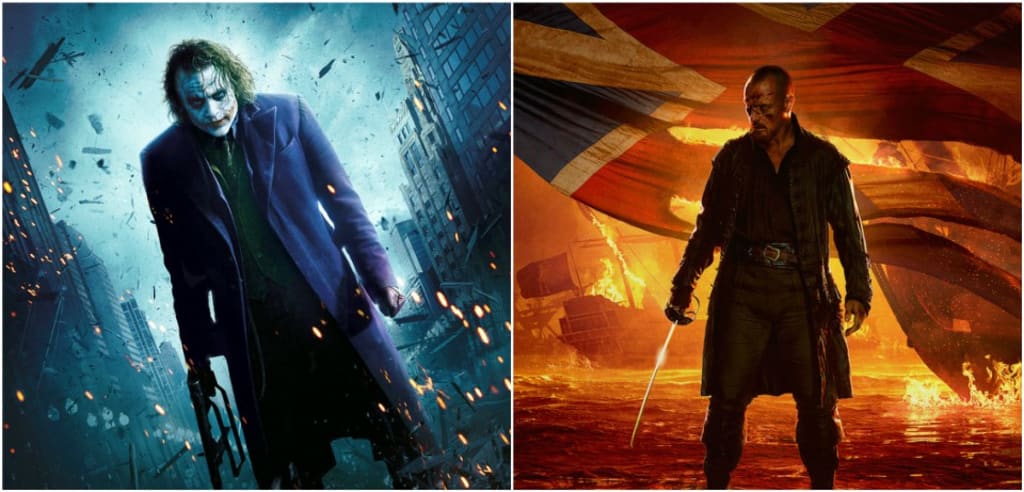
Are we only as good as the world allows us to be? That question has refused to leave my head while following the stories of all the irresistibly varied and conflicted characters in Black Sails — a gritty depiction of the Golden Age of Piracy and a sort of prequel story to the classic Treasure Island book.
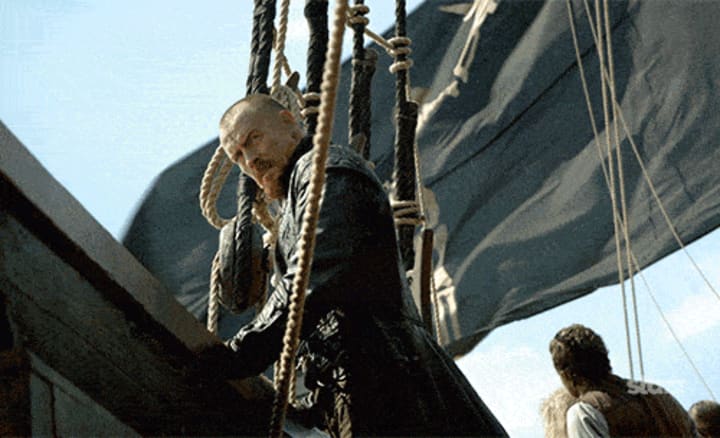
Now, in regards to the question above, I always felt a sense of familiarity towards it while watching the show. Initially, I struggled to pinpoint the exact reason for it. That was until I remembered the Joker and his little "social experiment" he conducted throughout the story of the The Dark Knight. From then on, these two completely separate works of fiction formed an unexpected duo in my eyes. In fact, watching Black Sails might have actually helped me to understand the central conflict in The Dark Knight better.
So, from the streets of Gotham to the seas of the Caribbean, let's see how the two compliment each other as they explore one of the most fascinating mysteries of them all: human nature.
Defining The Central Conflict In The Dark Knight
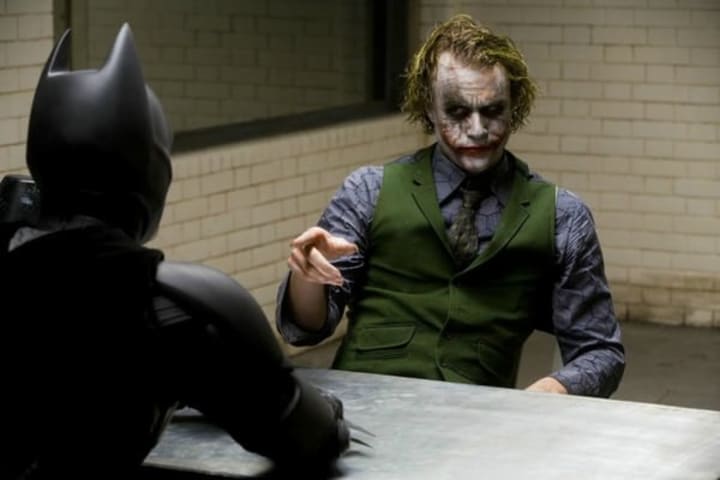
Let's start by quickly summarizing what was it exactly that the Joker was trying to prove in The Dark Knight and, by extension, what Batman was trying to disprove. Now, for that purpose, we need to understand a little term called the game theory. Simply put, it's the idea that all of the human behavior can be predicted and read by figuring out what is the most rational and profitable thing to do for certain individual in a certain situation. It's probably best summed up by this quote from Adam Smith:
"It is not from the benevolence of the butcher, the brewer or the baker that we expect our dinner, but from their regard to their own interest."
What the Joker does, is simply take this theory into a dark direction. The direction being that we are entirely ruled by our self-interest, altruism doesn't exist, and that human beings are so self-centered that they'll kill each other if they have to.
For Batman, besides the more practical goal of stopping Gotham from falling into chaos, the aim is simply to prove the Joker wrong by showing that altruism does exist. And so begins this battle of philosophies, which forms the central conflict of the story in The Dark Knight.
The Unclear Outcome Of The Conflict
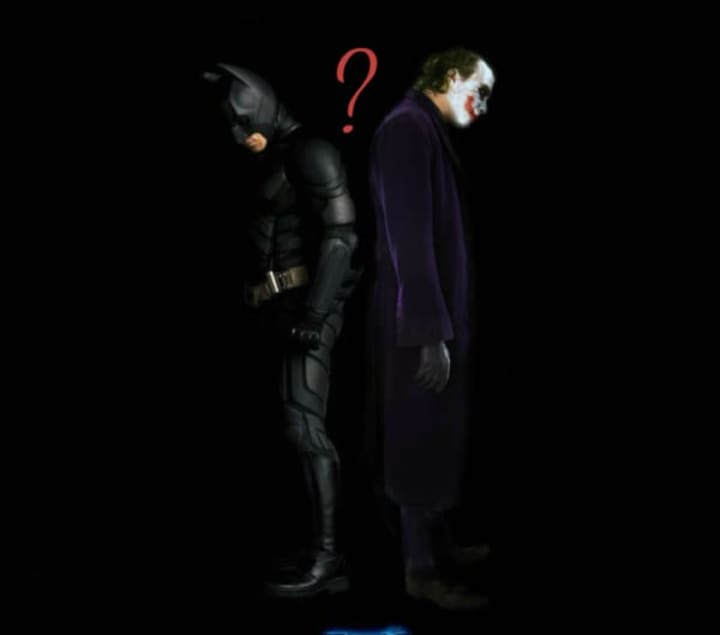
On the one hand, the Joker indeed failed to prove his point when the two boat-loads of passengers refused to blow up each other (even though he had threatened to blow up both of them if neither side did it first). Then again, he did manage to corrupt Harvey Dent — a symbol of altruism. Not to mention all the chaos he created by successfully manipulating many to act upon their self-interest.
Therefore, in order for the Joker to not win, Batman took the fall for Dent's crimes, explaining that he is whatever Gotham needs him to be and that sometimes, the truth isn't good enough. Subsequently, the film ended with a now famous monologue from Gordon.
However, as altruistic and noble an act it was for Batman to take blame for Dent's crimes so that the people of Gotham would continue to be inspired by Dent, it was still a lie. A lie that came to bite him and Gordon back eight years later in The Dark Knight Rises. Therefore, it would seem that neither the Batman nor the Joker was able to gain a conclusive moral victory over the other in how they went about their end-game.
To better understand why, it's time to shift focus towards Black Sails. Now, I will try to keep it as general and spoiler free as possible, but for the purposes of this article, many are rather unavoidable. So, tread carefully in these waters if you are either planning to start, or have just started watching the show.
A Perfect Setting To Explore The Human Nature

Freedom, confusion, conflicts...
In Black Sails, there are no heroes or villains; no good guys or bad guys. Instead, we simply witness a bunch of fascinating characters trying to navigate through a setting that excellently brings out the conflicting sides of their personality. So, before looking into what can be learned from these characters, let's check out the world they live in. Welcome to the Golden Age of Piracy!
Now, in order to gain the upper hand in the war with Spain, England devised a rather sneaky plan to start giving "hall passes" for the crews of private ships sailing under the British flag (a.k.a. the privateers) to raid Spanish vessels. Of course, once the war had ended, this so called hall pass expired, which, in turn, forced all of these opportunistic and experienced sailors to make their own luck. With valuable cargoes being shipped to Europe over vast ocean areas, reduced navies and ineffective governments in the overseas colonies, there certainly was a lot of luck to be made.
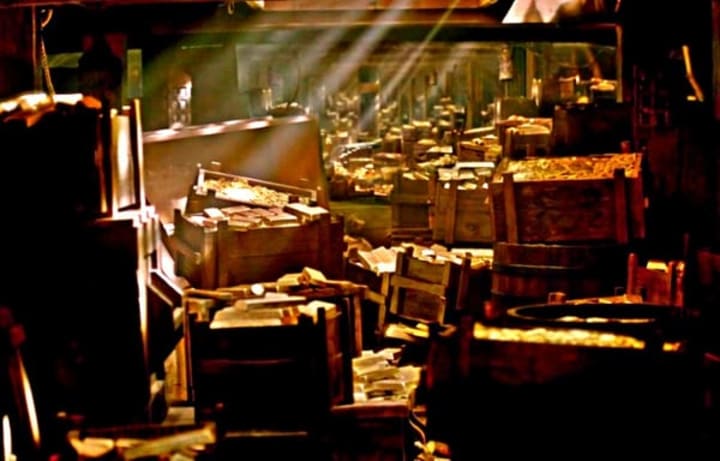
Pretty, pretty, shiny, shiny...
Thus, the privateers became pirates. However, they were not just your average thieves and murderers only out for self-interest and fortune (obviously there were plenty of them as well); there was also another layer to it. You see, the pirate base located in Nassau became its own society and something one might even call a fledgling democracy. Furthermore, aboard a pirate vessel, things were often fairly democratic and there were even“codes of conduct” that reflect modern laws in certain ways.
As if that situation wasn't intriguing enough already, England started offering pardons in order to combat the issue. Basically, these pardons were a chance for the pirates to be redeemed in the eyes of England, which meant no punishment for their deeds as long as they denounced piracy.
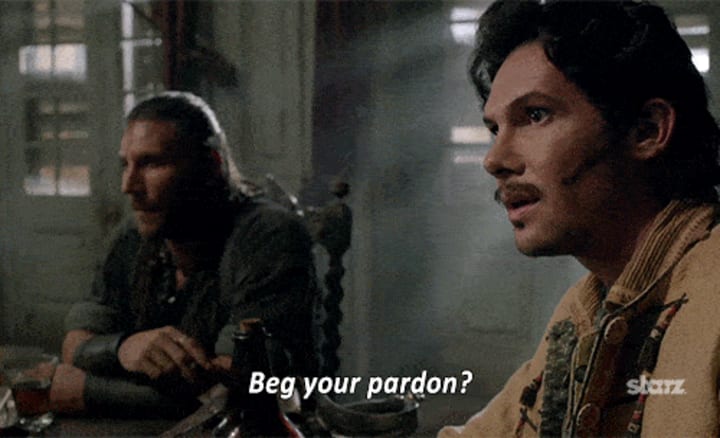
So, this is the world in which the characters of the show find themselves — conflicted between their own greed and the loyalty to their allies and friends, stuck between this elusive idea of a new nation (Nassau) free from the strong central powers of Europe, and their former country (England in this case). Also, we can't quite overlook the simple wish to save one's skin.
With that established, let's take a look at five examples and, subsequently, what conclusions can be made about the human nature based on them.
1. Captain Flint: A Monster Or A Good Man, Who Becomes One For A Noble Purpose?
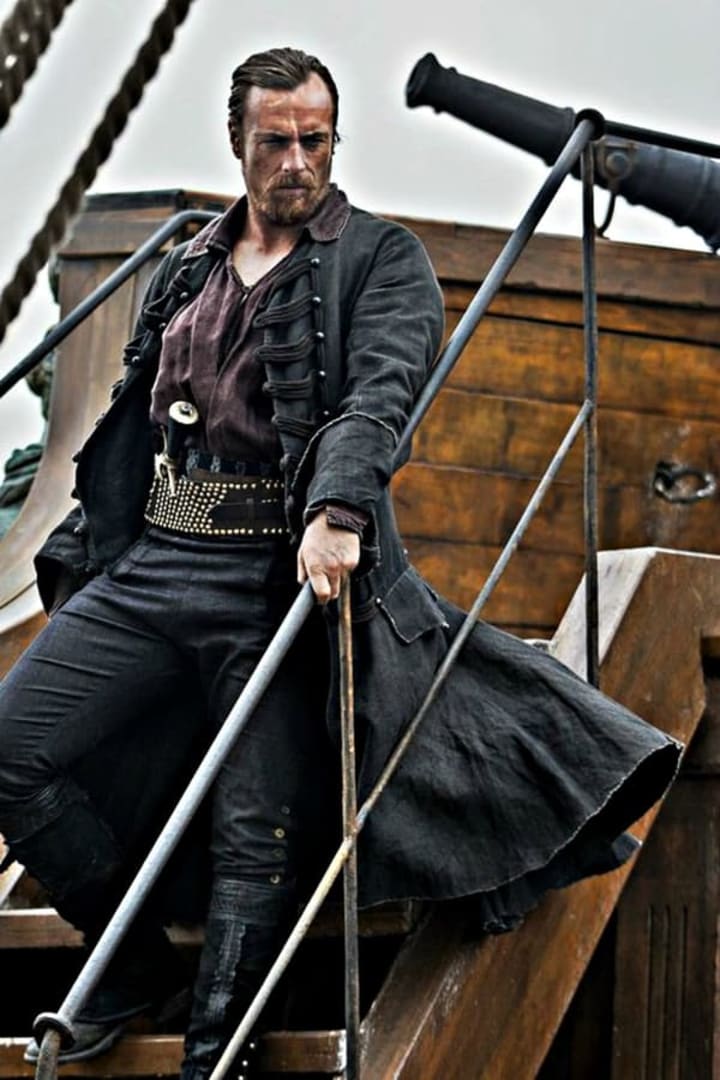
A walking contradiction?
Flint is easily one of the most conflicted characters in a show that, well, entirely consists of conflicted characters. A man who becomes a pirate after being betrayed for standing up to the hierarchy, he gets consumed by the alter ego he creates for himself as the notorious pirate captain Flint. Subsequently, he becomes something of a monster in the eyes of many, which also includes people close to him and pretty much his entire crew.
However, as the story progresses, we also see him clearly desiring to leave the monster he created behind. More importantly, we learn about his ultimate goal of a new nation in Nassau, which is free of (what he rightfully feels) the oppression of the King.
Now, when the chance to achieve both new nation of Nassau and leaving his pirate days behind fails at a crucial point in the story, his reaction is something rather interesting. Understanding that the freedom of Nassau cannot be achieved by peaceful means, he fully embraces the monster he has created as a means to an end to achieve this goal. However, from that point on, he gains more perspective and is able to mentally distance himself from that monster. In other words, good intentions and horrible deeds start coexisting in a bit twisted but equally fascinating harmony within him.
So, who is he? A dark man who excuses all the horrible things he commits throughout the story with that elusive greater good? Or, is he a good man who has reluctantly become a monster in order to achieve the birth of a new nation free of the established hierarchy?
2. John Silver: Opportunist With His Heart In The Right Place
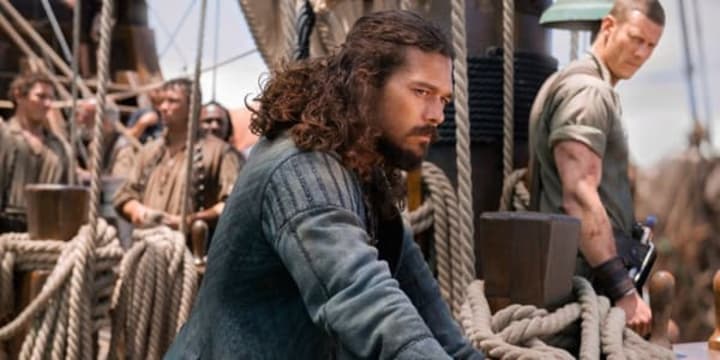
Silver, John Silver, Long John Silver...
Let's take another fascinating character in John Silver. Initially, Silver's arc is one about a charismatic nobody trying to cleverly scheme and manipulate his way to a fortune. Therefore, all of his actions seem to be motivated by this need for self-gain, which, as the Joker would suggest, rings true for all of us.
Nevertheless, at a crucial point, he does something altruistic for the entire crew of Flint's ship — people who were merely supposed to be a means to an end for Silver in his quest to gain this one big score. It costs him dearly and places him in a rather tricky situation; however, what it also does is earn him the respect and admiration of the crew and a powerful position among them. Thus, the outsider becomes one of the key players in a conflict he couldn't care less about initially. Now has to make the best of his new role.
Again, who exactly are we looking at here? A greedy opportunist who has no choice but to make the best of each situation? Or, a good person who realized that there is more to life than simply gaining a huge fortune and committing himself to it.
3. Eleanor Guthrie: Caught In The Crossfire?
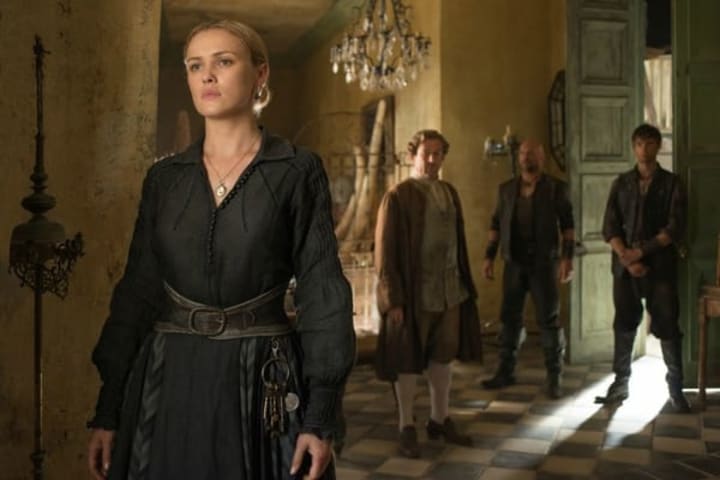
Does what needs to be done?
Yeah, the Joker would have a field day using this character as part of a case-in-point argument to prove him right about humanity. A daughter of the wealthiest black marketeer in the Bahamas, she is left by her father to oversee all his dealings with the pirates of Nassau. Eventually, she assumes the position of her father completely.
Now, in order to get into this position of power at the head of Nassau, and more importantly, to remain there, she is constantly forced to switch alliances and double cross the ones who trust her. In other words, she doesn't seem to have any problems with stepping over literally anyone whenever the situation requires it.
Yet, she can also be viewed as someone, who simply feels responsible to help the society of Nassau thrive — a place where she has spent most of her life thus far. Perhaps she is just someone who is forced to make one Sophie's choice after another and simply tries her best.
4. Charles Vane: A Criminal Or A Symbol For Freedom?
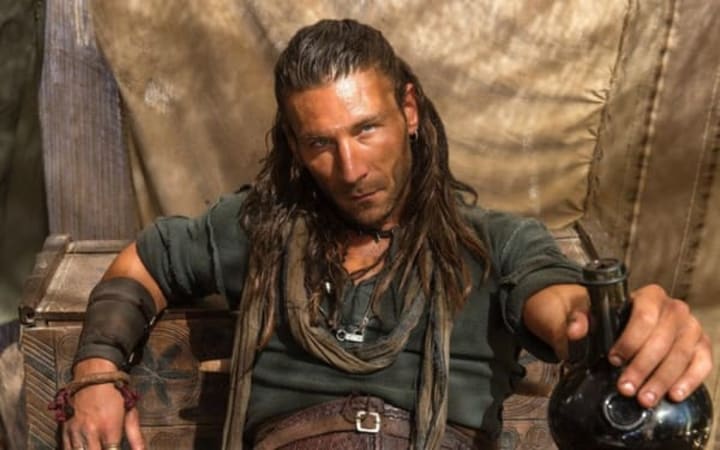
Pirate's life for me...
What makes Vane such an interesting character to follow is seeing just how much one's perception of him changes throughout the story. Being introduced as this savage pirate, he does many horrible things and it is clearly stated that he has also done plenty more in the past. However, as the story progresses, he emerges as one of the least pretentious players in this entire conflict. He is one who has a clear aim to form a free pirate nation of Nassau and a willingness to commit himself to it.
So, it would seem that this guy is a good candidate to be this savage pirate and an unpretentious symbol of freedom at the same time.
5. Woodes Rogers: A Pretentious Loyalist Or One Trying To Achieve The Least Bloody Outcome?
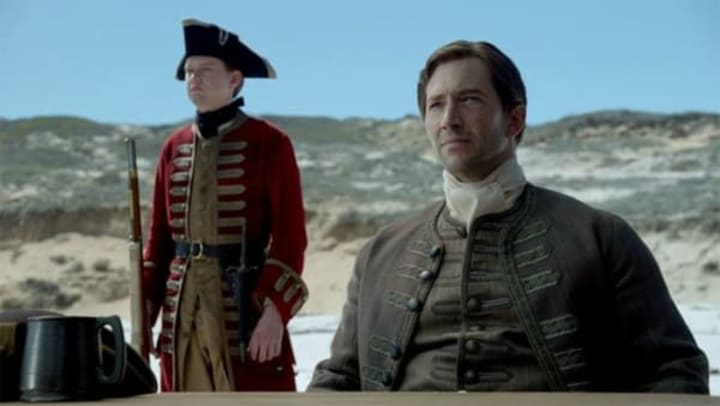
I came here to drink cups of tea and kick some butt. And I'm all out of tea...
For the last example, let's take a quick look at someone from England's side — Woodes Rogers. Now, this guy arrives to Nassau with a clear purpose: To win it back from the pirates by peaceful means (with the above-mentioned pardons). He also intends to make sure that the Spanish forces would not attack this place as a form of vengeance for all the occasions when the pirates have stolen from them.
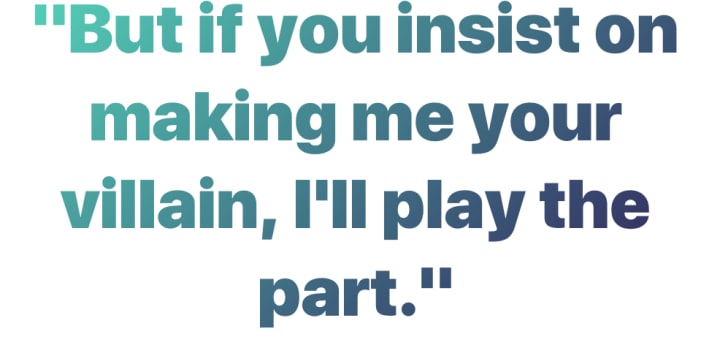
However, even though he constantly repeats that he does not want to be taken as the villain in this conflict, he is forced to move closer to becoming one in order to reach his goal of getting the control over Nassau. Thus, bringing us back to this dilemma yet again. Is he trying to do what's best for Nassau in the long run by getting rid of piracy in as peaceful manner as possible? Or, is he simply a tool for tyranny trying to suffocate a new emerging society?
What Can We Conclude From These Examples?
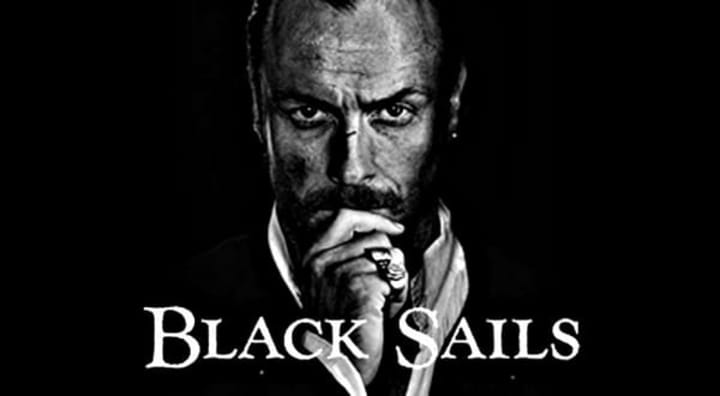
The thing is, well, I actually don't feel the need to make up my mind on which of these characters I should consider the heroes of the story and which the villains. I simply want to follow their interesting arcs, learn from their flaws and cheer for them when they get things right for a change.
Therein lies the key. It's within human nature to be both, opportunistic and altruistic, often at the same time — to do bad things for a noble cause and good things for a self-centered one. Furthermore, one who is considered a good person can still do something horrible and vice versa. The most important thing is that we shouldn't try to deny or ignore this complexity of human nature.
Now, this simple realization can also help us to understand why a story about a flawed person who does something amazing can be far more inspiring than one about some kind of an unflawed symbol of altruism and perfection. Let's return to the streets of Gotham.
Putting The Lessons From Black Sails Into The Context Of The Dark Knight
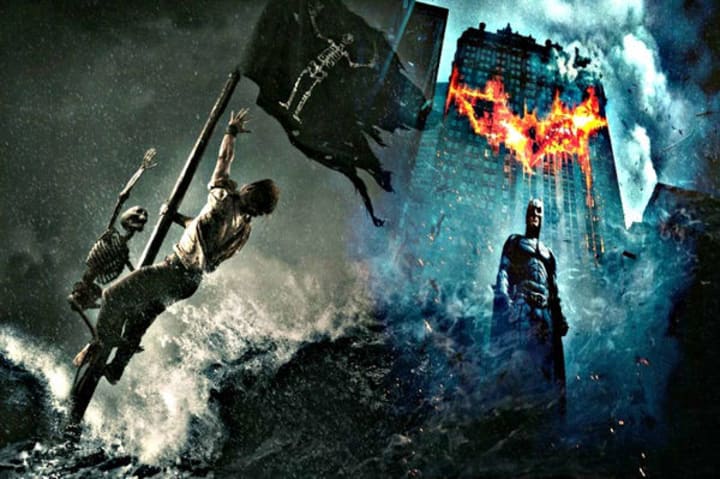
Taking all the above into account, it's easy to understand why the Joker failed to gain a conclusive victory — we are simply far more complex than some machines programmed only for self-gain. However (and perhaps more importantly) it also helps one to understand why Batman taking a fall for Dent's crimes might have not been the best approach in this battle for Gotham's soul.
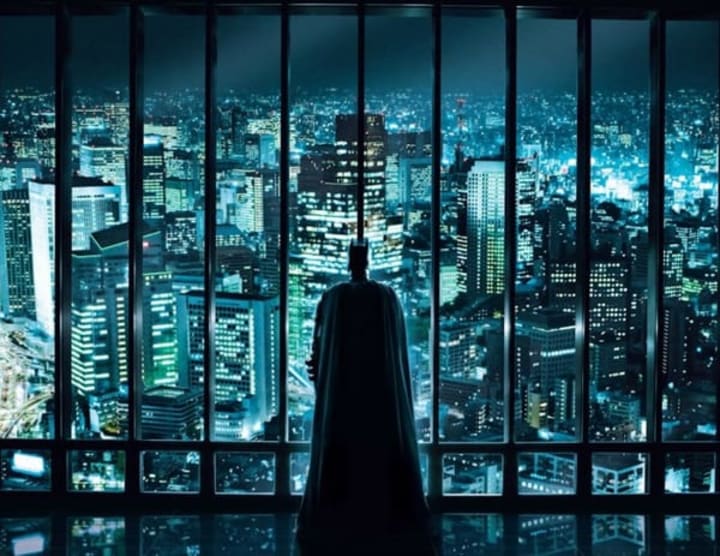
A lie or truth?
Honestly, I feel that Batman kind of underestimated the people of Gotham by lying to them. In fact, the truth would have actually been more inspiring on many levels.
What was the truth? Well, Batman — a vigilante with a mixed reputation in the eyes of general public — did the right thing and stayed true to his sense of justice. Harvey Dent on the other hand, being a symbol of altruism and perfection, was consumed by his flaws, which were rather tragically brought out by the horrible things that had happened to him. Therefore, people could have been inspired by what one can do despite not being some symbol of perfection, but be wary how even the best of us can be consumed by our darker side.
To Sum Up
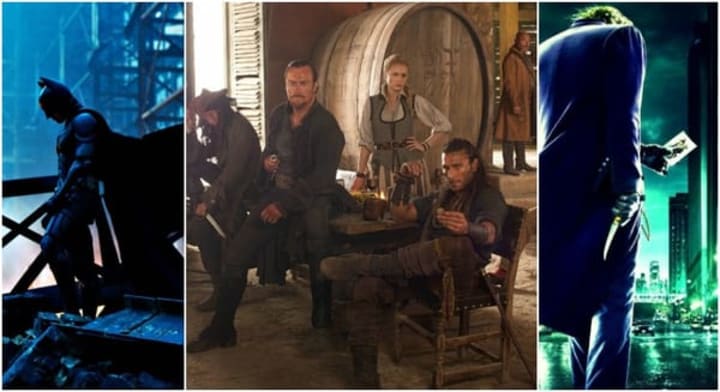
Beautifully conflicting...
So, are we only as good as the world allows us to be? Well, no. In fact, we are actually far worse (and far better). It means that what's happening in the world around us does bring out the different shades of our complex nature. However, if we try to understand it and simply go about things to the best of our ability anyway, the world around us can never truly define who we are — we have already done it ourselves.
Well, at least that's what I learned from a guy who dresses like a bat, a dude in a clown costume and a bunch of conflicted pirates.
About the Creator
Art-Peeter Roosve
So, to put it simply (and slightly cheesily) I'm fascinated with life. And, well, writing about films, TV shows, video games, music, travelling, philosophy and Formula 1 among other is a fun way to explore it.


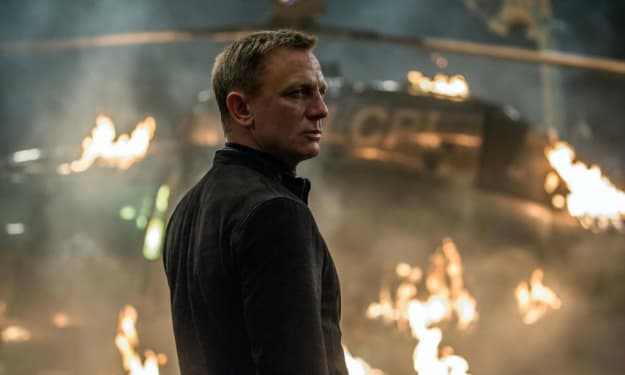

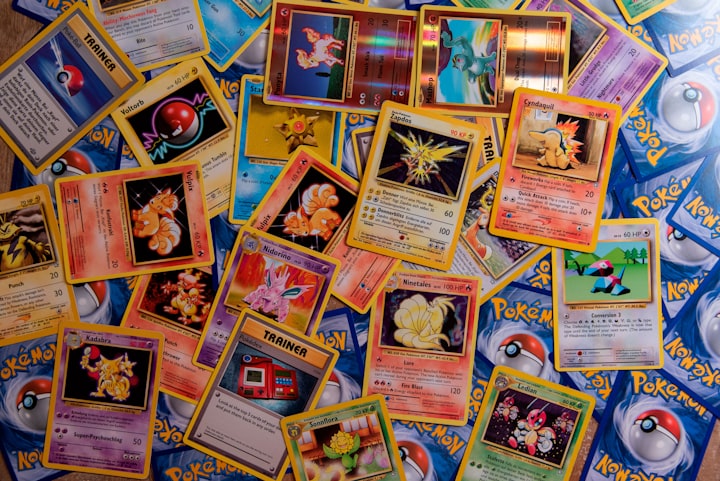

Comments
There are no comments for this story
Be the first to respond and start the conversation.